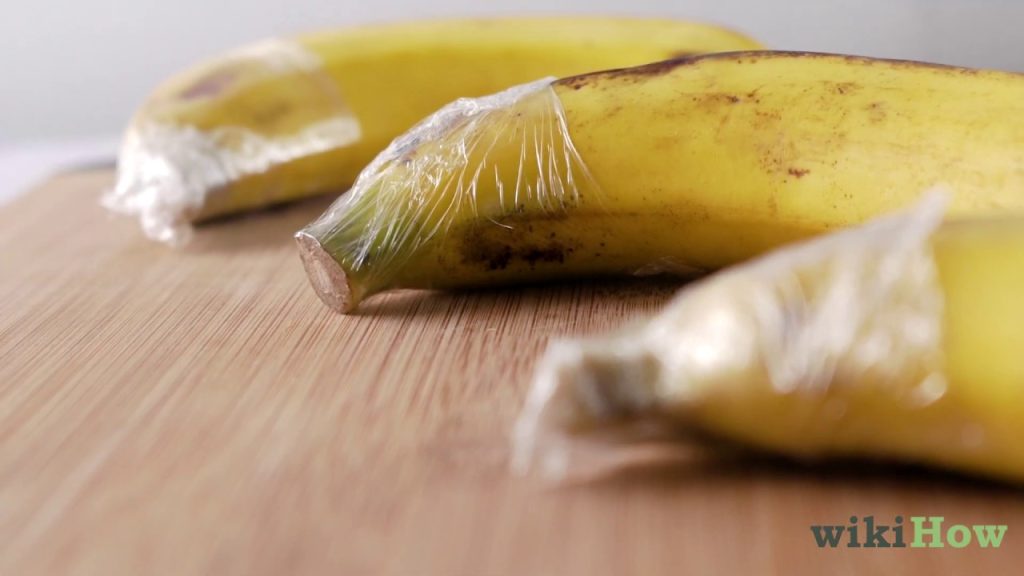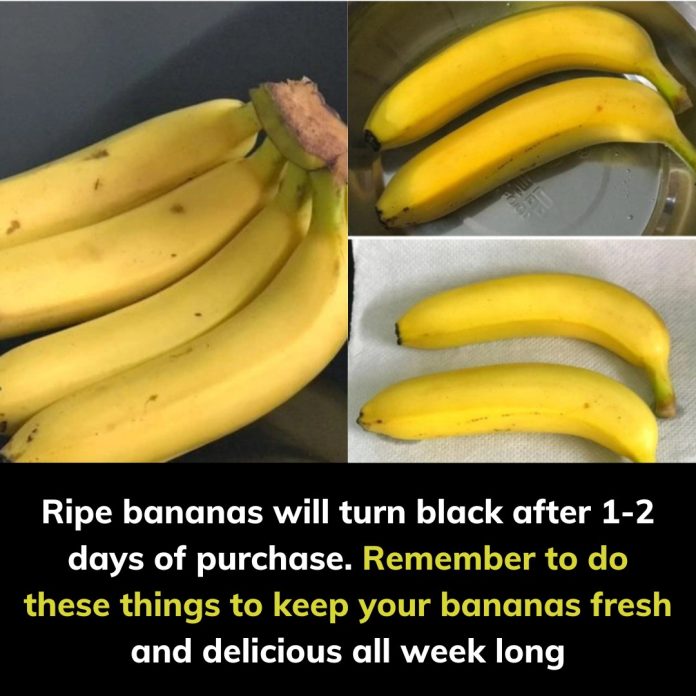Bananas are a staple in many households, cherished for their natural sweetness, nutritional benefits, and convenience as a snack. However, they have a notoriously short shelf life, often ripening and browning quickly, which can lead to unnecessary food waste. Fortunately, there are several effective strategies to extend the freshness of bananas, allowing you to enjoy them longer and reduce waste.
Understanding Banana Ripening
Bananas emit ethylene gas, a natural plant hormone that accelerates the ripening process. This self-produced ethylene causes bananas to transition from green and firm to yellow and soft, eventually leading to overripeness and browning. Understanding this process is crucial for implementing methods to slow it down.

Optimal Storage Practices
- Room Temperature Storage: Bananas thrive when stored at room temperature, away from direct sunlight. Placing them in a fruit bowl on the counter is ideal. However, it’s important to keep them separate from other fruits and vegetables that produce ethylene gas, such as apples, avocados, and tomatoes, to prevent accelerated ripening.
- Hanging Bananas: Utilizing a banana hanger or hook can prevent bruising and promote even air circulation around the fruit, reducing the risk of premature ripening and spoilage.
- Wrapping Stems: Covering the stems of bananas with plastic wrap or aluminum foil can slow down the release of ethylene gas from the stems, thereby extending their freshness. This method has been shown to reduce the speed of ripening.
- Refrigeration: Once bananas reach your preferred level of ripeness, placing them in the refrigerator can halt further ripening. While the skins may darken due to the cold, the fruit inside remains unaffected for several days. It’s important to note that refrigerating unripe bananas can cause chilling injury, leading to a bitter flavor and decay.
- Separation from Other Produce: To prevent bananas from ripening too quickly, store them away from ethylene-producing fruits and vegetables. Ethylene-sensitive produce can be adversely affected by the gas emitted by bananas, leading to faster spoilage.
Innovative Approaches
Recent advancements in biotechnology have led to the development of genetically modified bananas that resist browning. A biotech firm has engineered a “non-browning” banana that stays fresh for up to 12 hours after being peeled or cut. This innovation could significantly reduce waste and open new market opportunities for pre-prepared fruit products.

Additional Tips
- Avoid Plastic Bags: Storing bananas in plastic bags can trap moisture, leading to mold growth and faster spoilage.
- Freezing: For long-term storage, peel and slice bananas before freezing them. Frozen bananas are excellent for smoothies and baking.
- Monitoring Ripeness: Regularly check your bananas and consume those that are ripening faster to minimize waste.
By implementing these strategies, you can effectively prolong the freshness of your bananas, enjoy them at their peak ripeness, and reduce food waste in your household.

















